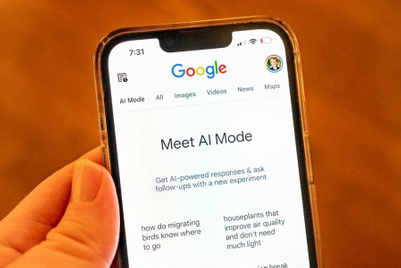
Waves of infections and lockdowns have shuttered regions in China, and as Shenzhen emerges from the restrictions, the nation’s financial hub Shanghai finds itself in shackles. Under a two-stage lockdown sealing off different districts at a time, 26 million residents are undergoing mandatory COVID-19 tests. Highways are met with empty streets and barred entrances, as the financial hub has become apocalyptic and the economy shaken up by stringent China’s zero-COVID policy. More concerning, however, is the daily increase of new COVID-19 cases throughout China. As of Friday, April 8, more than 21,000 new cases were recorded in Shanghai alone.
XXX_WithQuoteMarks_XXX
—XXXNameTitleXXXX
The shuttered city landscape and vanished footfall have challenged retailers to overcome zero-income periods. During closures, the government has requested state-owned firms to provide free rent to tenants for three months, whilst granting low-cost loans for small businesses and tax refunds for shopkeepers. Private estates have been asked by the authorities to extend rental relief as Hong Kong developers Swire Properties, Kerry and Hang Lung will be supporting their tenants.
Yet, despite lockdown life, COVID-19 has not affected the lifestyle of the rich, nor has it deterred big spenders from shopping. Travel restrictions have funded consumers with larger spending power and consumption of luxury brands domestically. Fortunately, luxury brands have already become accustomed to remote selling and are equipped with more sophisticated e-commerce tools, further proliferated by China’s existing strength in e-commerce. The global consulting firm Bain revealed total luxury online penetration in China accounted for approximately 26 percent of sales last year.
Meanwhile, grocery shortages have turned leafy greens into a luxury commodity, equating stock to wealth as netizens show off their vegetables wrapped in luxury packaging with a sense of humor. Though the nation is self-sufficient on e-commerce alone, fresh food apps and online grocery platforms are crashing with food delivery services overwhelmed. Even Douyin and Xiaohongshu has converted much of its social media platform to support grocery delivery services.
What normally would have been exclusive merchandise, flower bouquets or a box of branded confectionery, luxury labels have been spoiling customers with a range of food supplies, from fresh vegetables to full course meals served by Michelin star restaurants. Then there are the Shanghainese netizens trying to upkeep their aristocratic city appearance by dressing up for neighborhood tests and hanging luxury paper bags on their door handles to collect community supply drop-offs.

In light of the ongoing situation, luxury brands have not been imploring with discounts but rather recruiting new customers with increased brand value and craftmanship, further deepening relationships and loyalty through these out-of-the-box experiences for high-value customers. During times of need and product scarcity, these intangible offerings provide a value-added service that lends a personal touch, exceeding the expectations of consumers, thus strengthening the brand’s impression and loyalty.
While sales associates continue to livestream, post product updates on WeChat, and initiate one-on-one consultations, the importance of physical experiences and offline connections still persists. And when the current COVID-19 wave subsides, when Shanghai and it’s many luxury malls and boutiques open up once again, luxury brands will have to pivot between exploring more of the unrestricted digital space available — harnessing the metaverse and virtual avatars — alongside building unique offline partnerships with complementary brands to build, perhaps, a more relevant branded experience and products for such trying times and beyond.





.jpg&h=334&w=500&q=100&v=20250320&c=1)
.jpg&h=334&w=500&q=100&v=20250320&c=1)
.jpg&h=334&w=500&q=100&v=20250320&c=1)
.jpg&h=334&w=500&q=100&v=20250320&c=1)
.jpg&h=334&w=500&q=100&v=20250320&c=1)







.jpg&h=268&w=401&q=100&v=20250320&c=1)

.jpg&h=268&w=401&q=100&v=20250320&c=1)
.jpg&h=268&w=401&q=100&v=20250320&c=1)